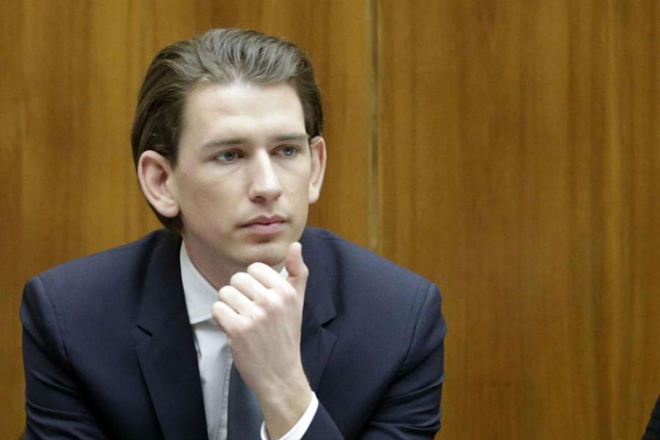Baku, Azerbaijan, Mar. 31
By Elmira Tariverdiyeva – Trend:
OSCE Chairperson-in-Office, Austria’s Foreign Minister Sebastian Kurz, today joined the OSCE Minsk Group Co-Chairs’ call for the sides to renew engagement in the political settlement process as expressed in their statement on 29 March, says an OSCE statement issued on March 31.
“The fighting and the violence we witnessed one year ago – the worst in the past two decades – caused destruction, suffering and human losses. It was a vivid reminder of how quickly the machinery of war can undermine efforts for peace. On this occasion, we call on the sides to refrain from any actions that jeopardize the ceasefire. The sides must live up to their commitment to strictly observe their international humanitarian obligations – war crimes can never be justified,” said Kurz.
Recalling the outbreak of violence in April 2016 along the line of contact between the Azerbaijani and Armenian troops, Kurz underlined his hope for fresh impetus in the negotiations.
“Clashes and serious violations of the ceasefire on the line of contact, resulting in casualties, were of particular concern to us throughout the past year. It is now high time for a focus on pragmatic and practical steps for confidence-building as well as a resumption of substantive negotiations,” emphasized Kurz.
In this context, Kurz voiced his regret at the further loss of lives since the tragic events in April 2016 and expressed his condolences to the affected families.
“As I have stated on numerous occasions, there is no military solution to the Nagorno-Karabakh conflict. We should plan for peace now, and not allow war to return with all of its terrible consequences,” he added.
Kurz also commended the work of Ambassador Andrzej Kasprzyk and his team, illustrated by the active facilitation of a humanitarian operation by the International Committee of the Red Cross in February 2017 to retrieve the remains of the deceased servicemen.
“The OSCE Chairmanship stands ready to contribute to the efforts of the sides to further advance and implement the agreements reached during the summits in Vienna and St. Petersburg in 2016,” concluded Kurz.
Following the meeting in St. Petersburg, Azerbaijan’s President Ilham Aliyev and Armenia’s President Serzh Sargsyan confirmed in a joint statement the agreements reached during the Armenian-Azerbaijani summit in Vienna.
These agreements are aimed at stabilizing the situation in the conflict zone and the creation of an atmosphere conducive to advancing the peace process.
Therefore, they agreed, in particular, to increase the number of international observers in the conflict zone, the Kremlin website reported earlier after the meeting of the Azerbaijani, Russian and Armenian presidents in St. Petersburg on June 20.
The conflict between the two South Caucasus countries began in 1988 when Armenia made territorial claims against Azerbaijan. As a result of the ensuing war, in 1992 Armenian armed forces occupied 20 percent of Azerbaijan, including the Nagorno-Karabakh region and seven surrounding districts. The 1994 ceasefire agreement was followed by peace negotiations.
Armenia has not yet implemented four UN Security Council resolutions on withdrawal of its armed forces from the Nagorno-Karabakh and the surrounding districts.






